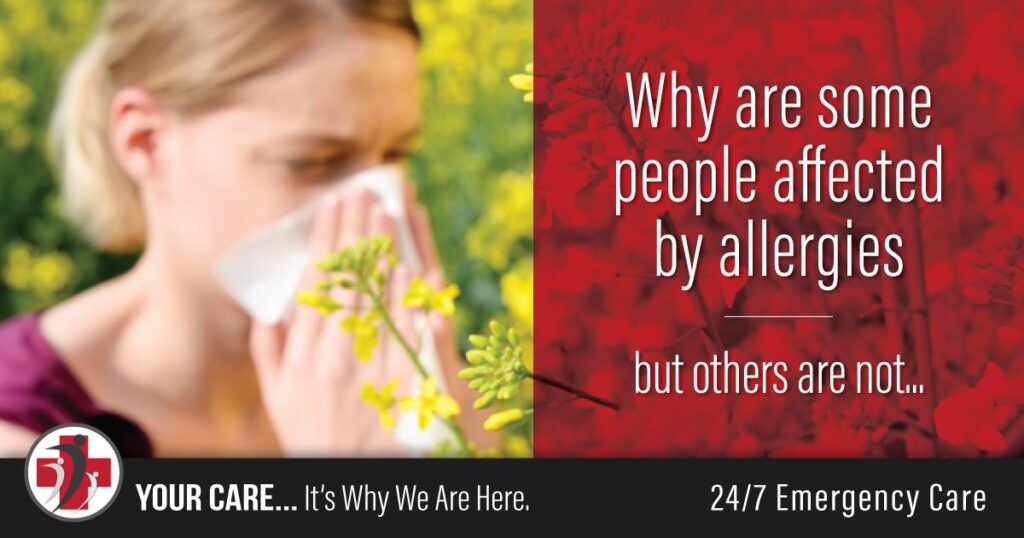If you thought that moving to the desert would mean an end to your struggle with environmental allergies, you’re probably in for a rude awakening right about now. The desert is a prime breeding ground for weeds, pollen, grasses, and trees – all of which can make springtime and early summer feel like an itchy, sneezy nightmare. And with May being National Asthma and Allergy Awareness Month, we at Fountain Hills Medical Center want to shine a light on some of the reasons behind allergies, and what you can do about them.
Have you ever wondered why some people are affected by allergies, while others skate through the seasons “achoo”-free? Even though many scientists say there’s no proven reason for this discrepancy, some agree that that there are a few determining factors that predict whether someone will suffer from allergies:
-
It’s in those genes . . .
If one parent has allergies, your odds are better. If both parents sniffle through spring, your likelihood almost doubles
-
. . . except it might not even matter
Your parents could pass on to you a tendency to have allergies but you might not ever develop symptoms. Or, you could end up allergic to something else, entirely different, from anyone else in your family.
-
Childhood exposure
When a baby is born with a tendency to develop an allergy, and they become exposed to a high concentration of the triggering allergen early in life, this often results in a lifelong allergy.
-
Other factors play a role
Cigarette use, hormone irregularities, having an infection, and environmental pollution can all play a role in determining whether you develop allergies.
Now that we’ve established that seasonal allergies in Arizona are unpredictable and miserable, what can you do if you experience them?
- DIAGNOSIS: First, we recommend that you visit us at Fountain Hills Medical Center for allergy diagnosis in Fountain Hills. If needed, we’ll help you determine whether what you’re experiencing is allergies, a cold or other virus, or something else. We may perform a skin prick test or other blood test to help identify exactly what you might be allergic to. We’ll ask you questions about your symptoms, and their duration and frequency.
- PREVENTION: If you do have a diagnosis of seasonal allergies, there are some things you can do to keep your system from getting aggravated. Avoid working or exercising outside on windy, dry days (hint: the best time to be outside is after a rain, when pollen is washed off surfaces). Also avoid hanging laundry outside where it can attract the allergens you’re trying to keep at bay. And don’t tell your significant other, but we’re giving you permission to take a break from a few of your chores – after all, mowing, weeding, and trimming will likely only trigger your allergy symptoms. There is, however one extra chore we’re adding to your list – vacuuming your floors, carpets, and draperies more often can help keep pollens and other allergen particles out of your home.
- TREATMENT: We can discuss with you a variety of treatments to help lessen the misery of allergies in Phoenix. Looking for holistic remedies? Try a saline nasal wash, or diffuse an essential oil blend meant for fighting allergy symptoms. Looking for relief over-the counter? There are a variety of oral decongestants or nasal sprays aimed at blocking the effects of allergies. Want something even tougher? Allergen Immunotherapy shots use desensitization to lower your body’s reaction to allergens over a period of time.
Above all, we want to make sure you know that Fountain Hills Medical Center is ready to discuss your allergy symptoms today. Give us a call to make an appointment, or simply walk in. There’s no need to suffer with misinformation, or leave allergy symptoms untreated. We’re your expert medical care, close to home and convenient for you.
Sources:
- Web MD
- Merck Manuals
- Mayo Clinic

